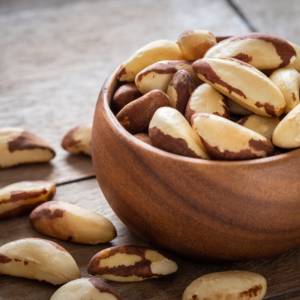Stress Less to Age Better
 If you are familiar with my practice, you likely know my stance on diet culture. However, you may be wondering what exactly diet culture entails. Society tells you that you need to be a certain shape, size, or body type to be happy. The only way to achieve this “ideal body” is by following the next fad diet.
If you are familiar with my practice, you likely know my stance on diet culture. However, you may be wondering what exactly diet culture entails. Society tells you that you need to be a certain shape, size, or body type to be happy. The only way to achieve this “ideal body” is by following the next fad diet.
However, these fad diets do not work. They usually have some set of rules telling you how much and when to eat, often leaving you feeling hungry and stressed. And ultimately when these diets fail, you’ll be left with a feeling of defeat.
Stress has a major effect on the body, the extent of which you may not even realize. One of these effects is a rise in the stress hormone cortisol. This hormone produces your body’s “fight-or-flight” instinct. A higher level of stress causes more cortisol production thus putting your body in more stress.
How Stress Affects Aging
Your body is made up of trillions of cells, within each cell is a structure called a telomere. These structures keep your chromosomes, which is comprised of DNA, from falling apart. The longer a telomere, the more effective it is at doing its job. If a telomere becomes short too quickly, it can quicken the aging process.
A study published in Clinical Nutrition looked at the intake of selenium in 3,194 adults and compared their telomere lengths. The researchers found for every consumption of 20 ?g of selenium, the participants’ telomeres length increased by 0.42%. They concluded that a higher selenium intake can improve the effects of aging through the lengthening of telomeres. In other words, higher consumption of selenium could mean better aging.
Some Foods That Contain Selenium:
Selenium is a mineral essential to your body’s health. It’s important because it helps your body with reproduction, thyroid hormone metabolism, DNA synthesis, and protects you from oxidative damage and infection.
The recommended dietary allowance (RDA) of selenium is 55 micrograms per day for adults and children 14 years and older. However, this need varies for children under 14 years old, and pregnant or breastfeeding mothers.
You can get all the selenium you need from food, so there is no need to take supplements. Here are some foods high in selenium:
- Tuna – Think outside the box with a tuna pasta salad, wrap, or spaghetti with tuna marinara sauce.
- Sardines – Try having sardines on whole wheat crackers with some cheese, straight out of the can with freshly squeezed lemon juice or mash it with half of an avocado with a little bit of lemon juice.
- Brazil nuts – Just pack these up as a snack all by themselves, mix into some healthy trail mix, or put them on top of your morning oatmeal.
- Meat – Foods such as turkey, roasted chicken, or ham are a good source of selenium, and they’re tasty too.
- Dairy milk – You can use milk in your cereal, in cream-based soups, in fruit smoothies, or just straight from a glass.
- Eggs – Enjoy the classic scrambled eggs, veggie omelets, hard-boiled, or on top of a slice of whole wheat toasted bread
5 Stress-Reducing Strategies:
While eating foods high in selenium can help reduce stress, there are other activities you can do to help keep your body relaxed. Reducing stress has many benefits, but when it comes to aging it can help preserve your telomeres. There are many strategies you can try until you find what works best for you.
- Yoga – The practice of yoga focuses on uniting the body and mind. Through poses (asanas), deep breathing, and grounding practices, yoga can help reduce stress.
- Meditation – Taking 5 or 10 minutes out of your day to just sit, breathe, and notice your thoughts or feelings can be enough to help bring your mind to a peaceful balance.
- Exercise – Going out for a brisk walk, bike ride, or any physical activity you enjoy can help your body level out the stress hormones so you can feel calmer and more relaxed.
- Quality sleep – Getting at least 7 to 8 hours of sound sleep each night gives your body and brain the chance to recover so you wake up feeling refreshed and less stressed.
- Journal – Writing down the events of the day, your feelings about a stressful situation, or a few things you’re grateful for, can be a perfect outlet for releasing stress
Stress impacts your everyday life, and often people will turn to food to deal with said stress. When you are able to manage your stress, you will begin practicing healthy habits, and no longer turn to food for comfort. However, managing your stress can be very overwhelming and you may need help coping. I have created a program, Stress Less Eat LessTM that will help you to discover a calm mindset to make healthy daily changes. To learn more about my program, click here.
Your Turn to Take Action: How will you incorporate selenium foods into your diet? Let me know in the comments below!


Leave a Reply
Want to join the discussion?Feel free to contribute!